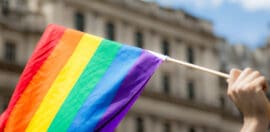The future (of investment) is female

14 April 2021 at 5:33 pm
A new report highlights that without focus on female investment Australia’s push for gender equality will continue to slide backwards
A crucial investment focus is needed on employment and relevant skills-matching, domestic violence services, accessible mental health care, and homelessness support, says a new report commissioned by Australians Investing in Women (AIIW).
Gender-wise Investing: A Springboard for Australia’s Recovery looks at how women have been disproportionately affected by the impact of 2019’s bushfires and the COVID-19 pandemic.
The report, which was written in collaboration with Equity Economics, goes on to provide a blueprint for impact investors and philanthropists committed to gender-wise investing.
In recent years, Australia’s progress on gender equity has slipped, with The World Economic Forum’s Global Gender Gap Index now ranking the nation 50th, behind countries including New Zealand, Rwanda, Nicaragua and the Philippines. In 2006, Australia ranked 14th.
By commissioning the report, AIIW is urging the Australian government, corporate leaders, impact investors and philanthropists to recognise that investment in women’s economic independence is essential for the country’s prosperity.
“We need to factor in the very specific experiences of women and girls in responding to the economic crisis we find ourselves in. If not, we will inadvertently widen gender gaps in economic outcomes and exacerbate gender inequality,” AAIW CEO Julie Reilly said.
“Applying a gender lens to policy and investment – whether philanthropic, commercial, or by government – is vital.”
She stressed that women were behind when the pandemic began, and have been hit harder by many of its economic and social impacts.
“If we take a gender-neutral approach to recovery, women will not only remain behind, they will fall further behind. This will not be a one-year impact, but a decade-long drag on opportunities for women,” she said.
The report had five key findings:
- Job losses were increasingly felt by younger women, potentially leading to long-term “scarring effects” from unemployment during the formative years of their career. The upshot is these women may not reach their true earning potential over their lifetime;
- Throughout Victoria’s extended lockdowns, 67 per cent of women took responsibility for home-schooling their children, and 60,000 fewer women over the age of 25 were enrolled in university in May 2020 compared to the same time in 2019.
- By December 2020, 25 per cent of women were experiencing high or very high levels of psychological stress, compared to 16 per cent of men, indicating a greater need for accessible, quality mental health care particularly for front line staff such as nurses, teachers and childcare workers.
- Australia saw a 9 per cent annual increase in domestic violence reports, with Queensland seeing a 20 per cent rise in court orders pertaining to domestic violence incidents in 2020.
- Older women are among the fastest-growing cohort seeking housing assistance, with domestic and family violence being the most common reason that women seek homelessness services.
Key areas identified for philanthropic and corporate investment were employment and skills matching, domestic violence, mental health and homelessness.
The report suggests the way to do this is for philanthropy to consider supporting both Women for Election Australia and Pathways to Politics as important non-partisan initiatives to increase the number of women in public office.
Specific gender-wise organisations in need of long-term support and investment – such as SisterWorks, Butterfly Foundation, Djirra and others – were flagged throughout the report with detailed explanations around how investment can help.
It concluded by stating: “Sustainable and meaningful progress on gender equality is not just about supporting women. It requires dismantling the gender stereotypes, unconscious biases, systemic barriers and power imbalances, which constrain both men and women from embracing the full suite of opportunities that society should offer all individuals as a human right.”
Find out more about AIIW and read the report here







